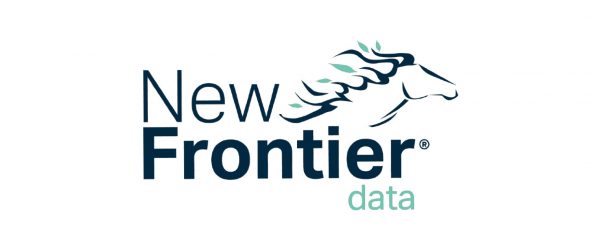
Consumer interest in products containing cannabidiol (CBD) is growing, according to New Frontier Data, a global cannabis research firm based in Washington D.C.
A pair of recent white papers published by New Frontier help to illustrate the opportunity in the burgeoning American CBD market, which could be worth $20 billion by 2024, according to Colorado-based cannabis research agency BDSA.
Earlier this year, New Frontier teamed up with popular payments firm Square, Inc., to produce what it calls “the largest U.S. CBD consumers survey to date.”
That effort — which helped New Frontier create a robust report outlining various consumer archetypes – found that 86% of U.S. consumers have heard of CBD.
Meanwhile, 73% of Americans have had a conversation about CBD and 61% believe that CBD could have medical benefits.
“Given that more than 3 in 5 Americans believe CBD has valid medical uses, the potential wellness value hemp may provide can no longer go unnoticed,” New Frontier founder and CEO Giadha DeCarcer said via a news release.
Despite the seemingly ubiquitous nature of CBD, only 18% of Americans have consumed the increasingly popular cannabinoid. However, 29% of U.S. consumers – about 73 million people – anticipate purchasing a product containing CBD before the end of the year.
That’s good news for a growing number of CBD brands angling for a slice of the market.
According to Benjamin Witte, the founder and CEO of recess, a CBD-infused sparkling beverage, consumers are searching for product that meet a variety of need states.
“People drink recess at all waking hours of the day, for many different reasons,” he said during a webinar hosted by New Frontier earlier this month.
Recess drinkers will wake up with the beverage, drink it after a workout, mix it with alcohol while socializing, or use it before they go to bed, he said.
“Broadly speaking, I think what’s going to happen here is there is going to be a lot more subsegments that are formed,” he said. “CBD is going to ultimately be combined with other functional ingredients, to deliver specific effects for different usage occasions.”
Witte envisions a possible future where Recess is combined with electrolytes for fitness enthusiasts or melatonin for those who need help falling asleep.
He also views CBD as an additive ingredient to things like coffee or smoothies.
“It is a category that exists across ready-to-drink beverages and supplements, which is different than I think a lot of these other functional beverage categories that came before,” he said.
According to New Frontier, 41% of CBD users are taking the cannabinoid for pain, while 33% are using it to unwind. Another 18% are consuming CBD for “general wellness.”

There are five main groups of CBD users, according to New Frontier.
Exuberant & intense consumers seek out and enjoy a wide range of CBD products, while integrative & consistent consumers have incorporated CBD into their personal wellness practices.
Skeptical and limited consumers consistently use CBD, but still want to understand more about the efficacy of the product.
Receptive & reserved consumers have used CBD on occasion but could become more frequent purchasers and are open to experimenting with new CBD products.
Finally, ambivalent & experimental consumers have used CBD samples, but never purchased it for themselves.
For his part, Witte believes the CBD category will one day be larger than energy drinks.
However, the future success of the CBD category – particularly infused items — will likely be determined by the U.S. Food and Drug Administration (FDA) determines to regulate products moving forward.
The FDA does not permit companies to add CBD to food or beverage items, even though hemp-derived CBD is no longer considered a controlled substance following the passage of the 2018 Farm Bill.
As of mid-April, only 16 states explicitly allowed CBD to be infused into food products, which has created uncertainty for companies like Recess.
The FDA recently submitted a report to Congress on CBD products that it tested over a period of six years.
Perhaps unsurprisingly, some products were mislabeled or did not contain the concentration of CBD being marketed to customers.
Nevertheless, the FDA acknowledged that it “recognizes the significant public interest in CBD products.”
“However, there are many questions about the characteristics of currently marketed CBD products because the Agency lacks significant information on what CBD-containing products are on the market and there are little data available on those products themselves,” it wrote in the report.
Want more insights? Head over to the New Frontier website.


